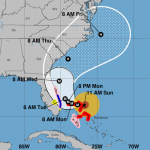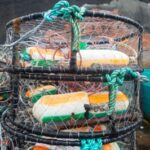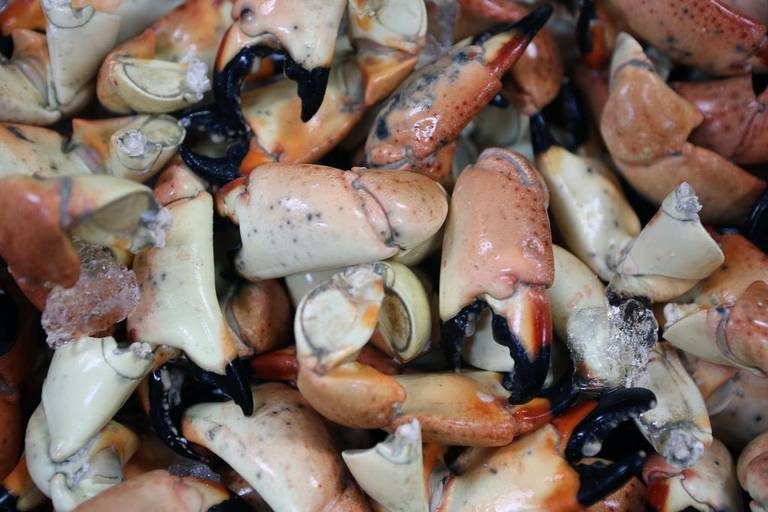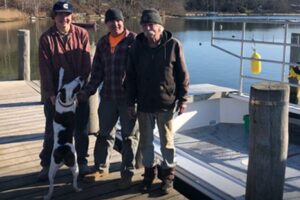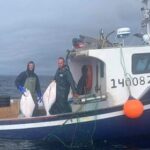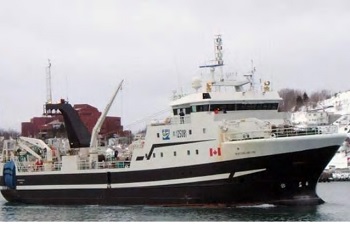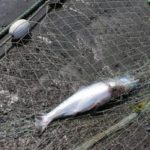An Update from Commissioner Keliher
Dear Industry Member,
I’m reaching to share what’s been happening recently at DMR. It’s been a busy summer.
CARES Act
Negotiations with NOAA on our CARES Act spend plan have finally been completed. To prevent individual harvesters from having to go through the difficult and time-consuming process of verifying their eligibility to apply for the relief funds based on the criteria that their 2020 revenue loss exceeded 35 percent of the previous five-year average, I had our Landings program complete this work. For other segments of the industry, such as recreational fishing guides, wholesale dealers, and aquaculture operations, it will be up to the individual or business as we don’t have the necessary information to make the loss determination.
Soon, we will be reaching out to you by mail and email with information on the application process. We will let harvesters know if our records indicate that they have experienced the required revenue loss, or if they show that they haven’t. If our landings data shows a harvester hasn’t experienced the required loss of revenue and are therefore ineligible, they’ll be able to appeal that finding as part of the application process.
USDA Trade Relief
You may have already read about relief for Maine fishermen coming from U.S. Department of Agriculture. This program is intended to compensate fishermen for loss resulting from retaliatory tariffs. We’ve been working with USDA’s Farm Service Agency in Maine to help fishermen navigate the application process. This relief fund will provide harvesters in several Maine fisheries with a valid 2020 license and 2019 landings anywhere from 4 cents per pound to 50 cents per pound depending on the species landed. This is good news for fisheries that have suffered as a result of these trade wars. More information on this program is at https://www.maine.gov/dmr/
Federal Whale Rules
Over the coming days we will complete a series of meetings with the lobster Zone Councils. The Councils will each finalize their decisions on “conservation equivalencies,” which are alternatives to the pending federal whale rule that preserve unique fishing practices and comply with the regulation. I’m grateful for the input and engagement of Maine’s lobster industry in this critically important process.
Aquaculture
The DMR Aquaculture Division held its first remote hearing last week and has scheduled several others for the coming weeks. Staff have worked hard and creatively to make remote hearings a possibility, while ensuring effective public participation in these proceedings.
Also, with the loss of a staff member due to budget constraints, the rest of the DMR AQ team is working collaboratively to continue processing Limited Purpose Aquaculture (LPA) license applications and renewals. Staff will continue to have discussions regarding long-term planning for, and improved efficiencies within, the LPA Program.
Maine’s aquaculture industry also got some good news when the USDA’s Coronavirus Food Assistance Program 2 (CFAP 2) was recently announced. CFAP 2 will provide producers, including eligible aquaculture operations, with financial assistance to help them absorb some of the increased marketing costs associated with the COVID-19 pandemic. More information on this program is at https://www.farmers.gov/cfap1
Marine Patrol
Marine Patrol is currently building a new 42’ patrol vessel that will be stationed in Boothbay Harbor to replace the P/V Monitor which was heavily damaged by fire. The Bureau is also about to initiate a hiring process as there are numerous vacant patrol areas. Marine Patrol has had a very busy summer focusing not only on resource issues but also handling a large number of recoveries. They continue to demonstrate exceptional professionalism and I’m tremendously proud of their work.
Research
DMR’s Bureau of Public Health in partnership with Bigelow Laboratory for Ocean Sciences received a grant from the National Oceanographic and Atmospheric Administration to develop short-term forecasting of Paralytic Shellfish Poisoning (PSP) toxicity levels in shellfish. This work will predict toxicity levels, helping industry members make business decisions related to potential closures.
The Maine-New Hampshire Inshore Trawl Survey is underway. The Trawl survey is a resource assessment survey performed along the coastal waters of Maine and New Hampshire. This survey is a collaborative research project using a commercial fishing vessel as the platform. Species assessed include groundfish, lobster, recreational finfish species, and non-commercial species of ecological interest. More information can be found at https://www.maine.gov/dmr/
Maine DMR is currently undertaking a research project in collaboration with the Atlantic White Shark Conservancy (AWSC) and the Massachusetts Division of Marine Fisheries (DMF) in an effort that will provide information about the presence of white sharks (Carcharodon carcharias) in Maine’s inshore waters, their migration patterns and habitat use. More information on this effort can be found at https://www.maine.gov/dmr/
The Maine Coastal Mapping Initiative, a project of the Maine Coastal Program that acquires critical data about the seafloor and our ocean environment, is mapping 40-45 square nautical miles targeting scallop areas off of Matinicus Island to inform DMR’s survey efforts, an area off Casco Bay in support of nautical chart revision, several areas around Pemaquid and off the Damariscotta River to inform lobster habitat, and beaches in southern Maine to track nearshore sand movement to inform beach nourishment placement. More Information can be found at http://www.maine.gov/dmr/mcp/
Like I said, it’s been a busy summer. But, despite the ongoing challenges of Covid-19 we have established remote operations and the work continues. I am very proud of DMR’s staff as they find creative ways to ensure critical work to sustain your fisheries and to support Maine’s coastal economy continues . We will keep sending these updates until we can gather in-person.
Until then, stay safe.
Pat


































